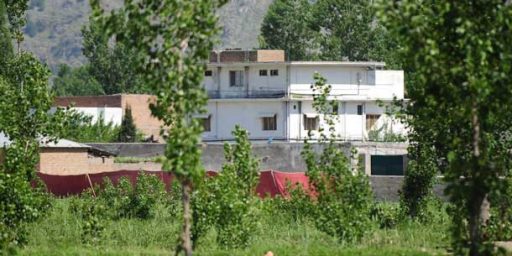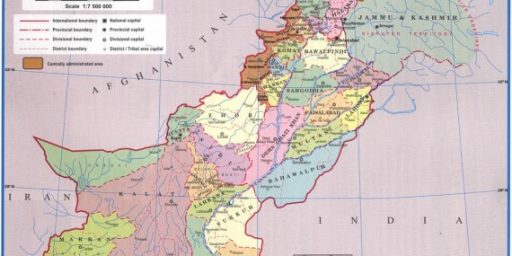U.S. Striking Al Qaeda Targets in Pakistan
The United States is stepping up its attacks on al Qaeda targets in Pakistan, largely without coordination with that country’s government.
The United States has escalated its unilateral strikes against al-Qaeda members and fighters operating in Pakistan’s tribal areas, partly because of anxieties that Pakistan’s new leaders will insist on scaling back military operations in that country, according to U.S. officials. Washington is worried that pro-Western President Pervez Musharraf, who has generally supported the U.S. strikes, will almost certainly have reduced powers in the months ahead, and so it wants to inflict as much damage as it can to al-Qaeda’s network now, the officials said.
Over the past two months, U.S.-controlled Predator aircraft are known to have struck at least three sites used by al-Qaeda operatives. The moves followed a tacit understanding with Musharraf and Army chief Gen. Ashfaq Kiyani that allows U.S. strikes on foreign fighters operating in Pakistan, but not against the Pakistani Taliban, the officials said.
About 45 Arab, Afghan and other foreign fighters have been killed in the attacks, all near the Afghan border, U.S. and Pakistani officials said. The goal was partly to jar loose information on senior al-Qaeda leaders, including Osama bin Laden and his lieutenants, by forcing them to move in ways that U.S. intelligence analysts can detect. Local sources are providing better information to guide the strikes, the officials said. A senior U.S. official called it a “shake the tree” strategy. It has not been without controversy, others said. Some military officers have privately cautioned that airstrikes alone — without more U.S. special forces soldiers on the ground in the region — are unlikely to net the top al-Qaeda leaders.
The campaign is not designed to capture bin Laden before Bush leaves office, administration officials said. “It’s not a blitz to close this chapter,” said a senior official who spoke on the condition of anonymity because of ongoing operations. “If we find the leadership, then we’ll go after it. But nothing can be done to put al-Qaeda away in the next nine or 10 months. In the long haul, it’s an issue that extends beyond this administration.”
Musharraf, who controls the country’s military forces, has long approved U.S. military strikes on his own. But senior officials in Pakistan’s leading parties are now warning that such unilateral attacks — including the Predator strikes launched from bases near Islamabad and Jacobabad in Pakistan — could be curtailed. “We have always said that as for strikes, that is for Pakistani forces to do and for the Pakistani government to decide. . . . We do not envision a situation in which foreigners will enter Pakistan and chase targets,” said Farhatullah Babar, a top spokesman for the Pakistan People’s Party, whose leader, Yousaf Raza Gillani, is the new prime minister. “This war on terror is our war.”
The problem is, the Pakistanis haven’t been fighting it. Unfortunately, as Dave Schuler noted on last evening’s episode of OTB Radio, it’s far from clear that we have the ability to tell the good guys from the bad guys on our own.






When Obama suggests this, he’s called naive. When the Bush Administration does it, all we hear are crickets.